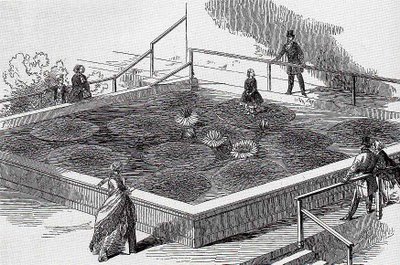|
|
- English 360
after Irene
- Narrative Writing: The Literature of Fact
- Fall 2011 | Dr. Terry Lee
-
- McMurran 162 •TTh 11-12:15
- Office—McMurran 201b • Office Hours—W 3-4; TTh 1-2 & by appointment
terrylee@risingpress.org or tlee@cnu.edu
594-7686
-
-
-
-
-
- Important note: This class requires all students to travel off campus throughout the semester to report and do interviews as part of their journalism studies. Generally, off-campus sites are accessible on foot. You will also be required to attend films and lectures outside of class time.
-
Texts:
- • Writing for Story, Franklin
- • Rosa Lee, Dash
- • The Orchid Thief, Orlean
- • The New New Journalism, Boynton
- • The New Yorker (readings from online)
• Writing Tools, Clark
- • Readings assigned from online sources
- Other text:
- • The Associated Press Stylebook (buy or borrow, if you don't have one)
- Optional:
- • digital audio recorder—recommended, but not required.
-
-
- • Class Policies
- Scroll to bottom of page.
- In brief—you can fail the class for poor attendance; late work, if accepted, is graded down; any plagiarism results in failure of the class. You must complete all work by the last day of class to receive a passing grade in the course.
-
- Goals of the class:
- • Our aim in this course is to write stories that people want to read. Our focus will be on writing narrative journalism. That means that we will report and write stories that engage readers in narratives that show what it means to be human. To become better writers, we will read and critically analyze literary journalism, also known as creative nonfiction... also known as narrative journalism. Our aim, too, is to sharpen our abilities to analyze the written work of writers and to report accurately and to write for story. This is a challenging, but particularly rewarding, kind of journalism. Done well, narrative journalism stories "resonate" with a timeless quality, just as good literature does.
-
- Requirements:
-
- • Narrative Story Proposal (250 words)—(Due Sept. 13)
- You have already talked with key subjects, done a bit of research and observation. You are pitching the story to your editor.
• Personality Profile (1,000 words)—(Due Sept. 20)—10%
- A personality profile of your narrative story subject. A sketch uses the reporter's eye for descriptive detail, for drawing scenes and for the kind of observation and writing that illuminates an individual's character, the nature of a place, the sense of having been at an event. It is polished writing, but more of a scene than a story. (See style requirements under "Rough Draft," below.)
- • In-class writing— (2,500 words) 30%
- Unannounced: These are brief, analytical in-class and take-home writing assignments based on recent reading and reading for the day. You will be asked to write in class or assigned a take-home assignment due the next class. Alternatively, you may be asked to do some reporting and writing in and/or out of class.
- Additionally, in-class assignments may have an analytical question about assigned readings, stories on line, etc. (You may bring your underlined, annotated print copies.)
-
- • Scene Drafts — (2,500 words) 30%
- E-mailed to me and to yourself and turn in hard copies for grading
at least 5—500 words+ per scene draft—substantive scene drafts completed by Nov. 10.
What is a scene draft?
The "Scene Drafts" are rough and loose drafts in story form of your reporting and notes that you will type up and e-mail to me within 24 hours of the reporting/interviewing.
- Each "Scene Draft" will be different: some will be long, some short. Some will be the result of a full day of immersion reporting; some will be the result of a substantive interview or two.
E-mailing:
For each e-mail draft, enter the following in the "subject" line: Your last name/ 360 Scene Draft #__.
Heading:
1. Name and date
2. A sentence describing how you developed the draft. For instance, explain how and where you did your reporting. Name your sources. An additional sentence describing anything else that will help understand how you completed this scene draft.
3. How you think this scene draft will help you construct your final story.
• Rough draft of Narrative Story—(2,500-3,000 words) 10% (Due Nov. 15)
- A complete rough draft of your story. Graded for 1) completion; 2) work to develop a narrative arc; 3) use of sensory & storytelling detail; 4) focus on a single, main character.
STYLE REQUIREMENTS
- • Use 12 point Courier (or New Courier) type size and font
- • Follow AP style
- • Double-space all work
- • head initial page with your name, the assignment, the date, the class name and a slug (a one-word label for the story)
- • Do not title your stories
- • List all of your sources by name and with a phone number contact
- • Be sure that all of your information is factually correct: it may be fact checked
- • Use multiple sources. Single-source stories are not acceptable.
- • Proofread for grammatical errors and typos. Work with errors will be returned without a grade for revision and will be marked down when resubmitted.
- • Narrative Story (2,500-3,000 words)—20%
(Due Dec. 7)
- The story will be the result of many in-depth interviews, research and many hours of reporting—of being with your subject.
- This is not only completely reported, but completely revised and polished, as needed. Turn in a folder with
- 1) your final draft,
- 2) your rough draft,
- 3) the complete file of printed out e-mailed drafts (5 substantive scene drafts, minimum)—print outs from your e-mail program, bearing the original time/date stamp and
- 4) your notes and any research that you used. (If e-mail is unavailable, type your Scene Draft, head it as you would the e-mail subject line, and deliver it to the English Department, having a student assistant or Mrs. Hartley sign and time/date stamp it.)
-
-
Assignment List
8/23
- • Introduction
• "A Spotlight on Calcutta's Red-Light Children," Lynda Richardson
and available on "Newsbank" database via library. Sketch of Zana Briski.
• "A Beautiful Time for Change," Christian Freymeyer
- 8/25
- • Mark Kramer on "narrative."
- • Michael Pollan on "narrative."
A NARRATIVE "BRITE"
• "The deer departed," Pam Louwagie, Minneapolis Star Tribune 5/25/2004. Available on Newsbank, available via library homepage. Search the headline and author/byline.
SUSPENSE: A basic narrative tool at work.
• "An Animal's Place," Michael Pollan. New York Times Magazine, Nov 10, 2002. (Available Historical New York Times database.)
-
-
- 8/30
Irene
9/1
THE PERSONALITY PROFILE
Briefly...
• Chip Scanlan on "narrative."
• "Will Jonathan Graduate?" Lonnae O'Neal Parker, Washington Post
•"From Jon to Lani: The Gift of Life," Scanlan (.pdf)
- 9/6
- A full-blown magazine piece on personality (and more)...
• "The Lone Star," Dan Halpern The New Yorker, August 22, 2005. Available on ProQuest Online, library homepage. (Enter in search window: the lone star dan halpern).
• Heart Attack Beat Character Sketch assignment
-
-
-
-
-
-
-
- 9/8
- HIGH EMOTIONAL VALENCE: A story in five scenes
• "Through the Lens, Bravely" Lane DeGregory (Linked via "Newsbank")
• "Hey, You. Don't Go in There," Sheryl Covey
• "Pillar Strong," Julie Hagy
-
-
- 9/13
- • Jon Franklin on "narrative," in Writing for Story: the outline (109-121)
• narrative story roundtable: Come with ideas for your narrative story
-
- 9/15
- •
THE COME-ALONG-WITH-ME-NARRATIVE: Finding story in the work-a-day world.
• "Tight-Assed River," John McPhee, The New Yorker, Nov. 15, 2004. The New Yorker stories are available from "ProQuest," which is linked to the library homepage.
• "Cops," Lauren Price
• Due in class today: Your narrative story proposal—250 words.
-
9/20
- • STYLE & THEME IN BOOK-LENGTH NARRATIVE
• Boynton, "Susan Orlean"
• Mark Kramer, Reporting & Coming Back with a Notebook Full of Narrative
- (Available from "Expanded Academic" database at library in "Nieman Reports" journal, 56.1 (Spring 2002): p. 13.
-
 
- 9/22
- • The Orchid Thief, Orlean (3-152)
• Due: Personality profile due (1,000-1,500 words)

Annie Paxton standing onVictoria amazonica. (Orlean 71)
-
-
9/27
- • The Orchid Thief, Orlean (153-end)
-
-
- 9/29
- • "Mrs. Kelly's Monster," Franklin (28)
- • Franklin: Stalking the true story (70-90)
-
10/4
- • Franklin: structure (91-108)
-
- 10/6
• "Just Write What Happens," William F. Woo
• "Narrative Writing Looked Easy," Richard Read
• "The French Fry Connection," Richard Read
-
10/11
- • "Maintaining the Old Ways," Richard Read
• "The Community of Commerce," Richard Read
-
- 10/13
- • Boynton, "Jonathan Harr"
Further (optional) reading:
• "Fries to Go, Chaos to Come," Richard Read
• "Stands in a Broken Web," Richard Read
• "New Competitors in an Old Land," Richard Read Fall break
-
10/18
- • Fall break
-
- 10/20
-
-
- • "The Conciliator," a profile of Barack Obama
(If the link fails, go to the story here.)
10/25
- •TBA
-
-
- 10/27
- •narrative story roundtable
: Bring copies for each member of the class of your best scene draft to date.
-
-
11/1
- •narrative story roundtable
: Bring copies for each member of the class of your best scene draft to date.
-
- 11/3
- • Boynton, "Leon Dash"
-
11/8
- • Rosa Lee, Dash
-
- 11/10
- •Rosa Lee, Dash
-
11/15
- •Rosa Lee, Dash
-
- 11/17
- • Last day to turn in a complete draft of the narrative story
• Boynton, "Ted Conover"
-
11/22
- • "Guarding Sing Sing," Conover
• Sing Sing documentary film (68 min.)
-
-
- 11/24
- • Thanksgiving
11/29
- • conferences
-
- 12/1
- • conferences
-
12/6
• Make-up class for Irene
• conferences
12/7
- • Narrative story due
-
-
-
-
-
- 12/9, Friday
— 11-1:30
—New date, after Irene
-
- • Final Exam / Comprehensive assessment
-
-
-
-
-
- General Course Policies
-
-
- Cell phones
Cell phones must be turned off and out of sight at all times in class.
Laptop computers
Laptops may not be used in class without the instructor's permission.
Leaving the Classroom during Class
Leaving the classroom, then returning, during class is distracting and disruptive—and is prohibited.
-
- OFFICE HOURS
- My door is always open, and I am happy to see you during my office hours, as well as other times that I'm in my office—drop by or call or e-mail to see if I'm in. You are welcome anytime to come by and talk about your class work in general, or about a specific reading or essay draft on which you are working.
-
- Learning Disabilities
Any student who believes that she or he is disabled should make an appointment to see me to discuss her or his needs. To receive an accommodation, a student’s disability must be on record in the Office of Career & Counseling Services at 594-7047.
-
-
- E-MAIL
- Feel free to check in with questions about any aspect of the class. Terry Lee
-
- Phone
- My office phone: 594-7686
-
-
- Attendance
- Not Attending Class Can Result in Failure of Course
- You may miss one week of class without any penalty or consequence. You are responsible for the material covered, of course, and I draw my exam questions from material covered in class, class discussion and lecture, as well as from our texts.
-
- Additional absences will result in reduction of your final course grade. That means that a "B" in all of your coursework can become a "C," if you have excessive absences. It also means that a passing grade for the course can become a failing grade for the course.
- In the case of an emergency, contact me as soon as possible. Emergency absences can be excused, and I may ask for documentation.
- In general, let me know what's up if you're not in class.
-
- Tardiness
- Tardiness counts as absence, as does leaving class early. If you have specific reason for arriving late or leaving early, please check with me. If this will be a recurring problem, please see me at the beginning of the semester.
-
-
- Late Work
- I will not accept late work in this class.
- Complete All Work
- You must complete all work by the last day of class to receive a passing grade.
-
- Incompletes
- Given only in extraordinary circumstances. Plan to complete work by last day of class. Not completing the work results in an "F," not an "I.
|